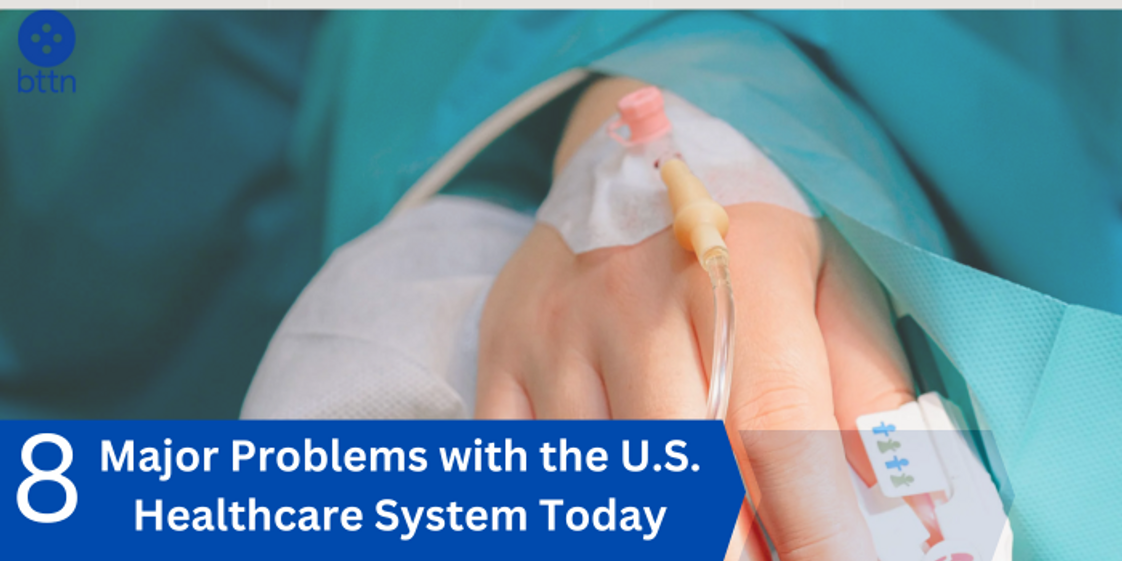
8 Major Problems with the U.S. Healthcare System Today
Posted by Pankaj Dhiman on Aug 17th 2023
The US Healthcare System is Broken: Here are 8 Reasons Why
Millions of Americans' lives are impacted by the complex network of institutions, regulations, and practices that make up the American healthcare system. It offers access to top-notch medical treatment, but it is not without problems. In this blog, we will examine 8 significant issues with the current U.S. healthcare system, illuminating the flaws that still plague the country's healthcare system.
Lack of Universal Healthcare Coverage
One of the most significant issues facing the U.S. healthcare system is the lack of universal healthcare coverage. Unlike many other developed nations, the U.S. does not guarantee healthcare as a basic right to all its citizens. As a result, millions of Americans remain uninsured, leading to delayed or inadequate medical care for those who cannot afford it. This lack of access to preventive services and early treatments can result in more severe health issues down the road, driving up overall healthcare costs.
Must Read - 10 Most Common Health Conditions in the US: Symptoms, Causes, and Prevention
Rising Healthcare Costs
Individuals, families, and the government are all quite concerned about how much healthcare is costing in the United States. Patients are financially burdened by the rising costs of medical operations, prescription drugs, and insurance premiums, which results in higher out-of-pocket costs. High healthcare prices might deter people from getting the appropriate care, which can result in more serious health problems that are more expensive to address.
Must Read - Virtual Healthcare Services: A Growing Trend in the Healthcare Industry
Inefficiencies in Healthcare Delivery
The U.S. healthcare system often faces challenges regarding efficiency and coordination. Fragmentation among different healthcare providers can lead to redundant services, conflicting treatments, and communication gaps. Lack of interoperability in electronic health records further exacerbates these inefficiencies, resulting in delayed diagnoses and unnecessary medical tests, contributing to overall healthcare expenses.
Health Inequalities and Disparities
Healthcare disparities persist in the U.S., affecting minority populations and low-income communities disproportionately. Factors such as race, ethnicity, socioeconomic status, and geographic location can influence access to quality healthcare and the prevalence of chronic conditions. Addressing these inequalities is crucial to ensure that all Americans have equal opportunities for good health and well-being.
Opioid Epidemic and Substance Abuse
Millions of people's lives are being impacted by the alarming opioid crisis that is wreaking destruction in the United States. The overprescription of opioid medicines, the scarcity of facilities for addiction treatment, and the embarrassment associated with substance usage in society have all contributed to the epidemic. With a surge in ER visits, medical complications, and rising healthcare costs associated with addiction treatment and recovery, this epidemic puts a significant strain on the healthcare system.
Preventive Care and Public Health
The focus on preventive care and public health initiatives in the U.S. is not as robust as it should be. Investing in preventive measures, such as vaccinations, screenings, and education, can significantly reduce the burden of chronic diseases and improve overall population health. Unfortunately, the current system tends to emphasize treatment over prevention, leading to avoidable health complications and excessive healthcare spending.
Must Read - The Perfect Storm Coming for Nursing in the United States 2025
Mental Health Access and Stigma
The U.S. healthcare system continues to face difficulties in the field of mental health. Many people with mental health disorders do not receive the care they require because access to mental health providers is restricted. The stigma associated with mental health problems also discourages people from getting treatment, which exacerbates their conditions. For a better country, it is essential to address mental health through more financing, awareness campaigns, and improved access to care.
Medical Malpractice and Litigation
Medical malpractice is a significant concern in the U.S., leading to expensive litigation and defensive medicine practices. The fear of lawsuits can drive healthcare providers to order unnecessary tests and procedures, increasing costs and potentially putting patients at risk. Balancing the need for accountability with effective medical malpractice reform is essential to ensure patient safety and reduce healthcare expenses.
Conclusion
While the U.S. healthcare system offers exceptional medical advancements and treatments, it is not without its challenges. From the lack of universal healthcare coverage and rising costs to disparities in access and mental health stigmatization, addressing these major problems is essential for creating a more equitable, efficient, and affordable healthcare system for all Americans. Policymakers, healthcare providers, and citizens must work together to find innovative solutions that prioritize preventive care, improve healthcare delivery, and promote the overall well-being of the nation. Only through collaborative efforts can we build a healthier and more sustainable future for the U.S. healthcare system.
Recommended Read:
